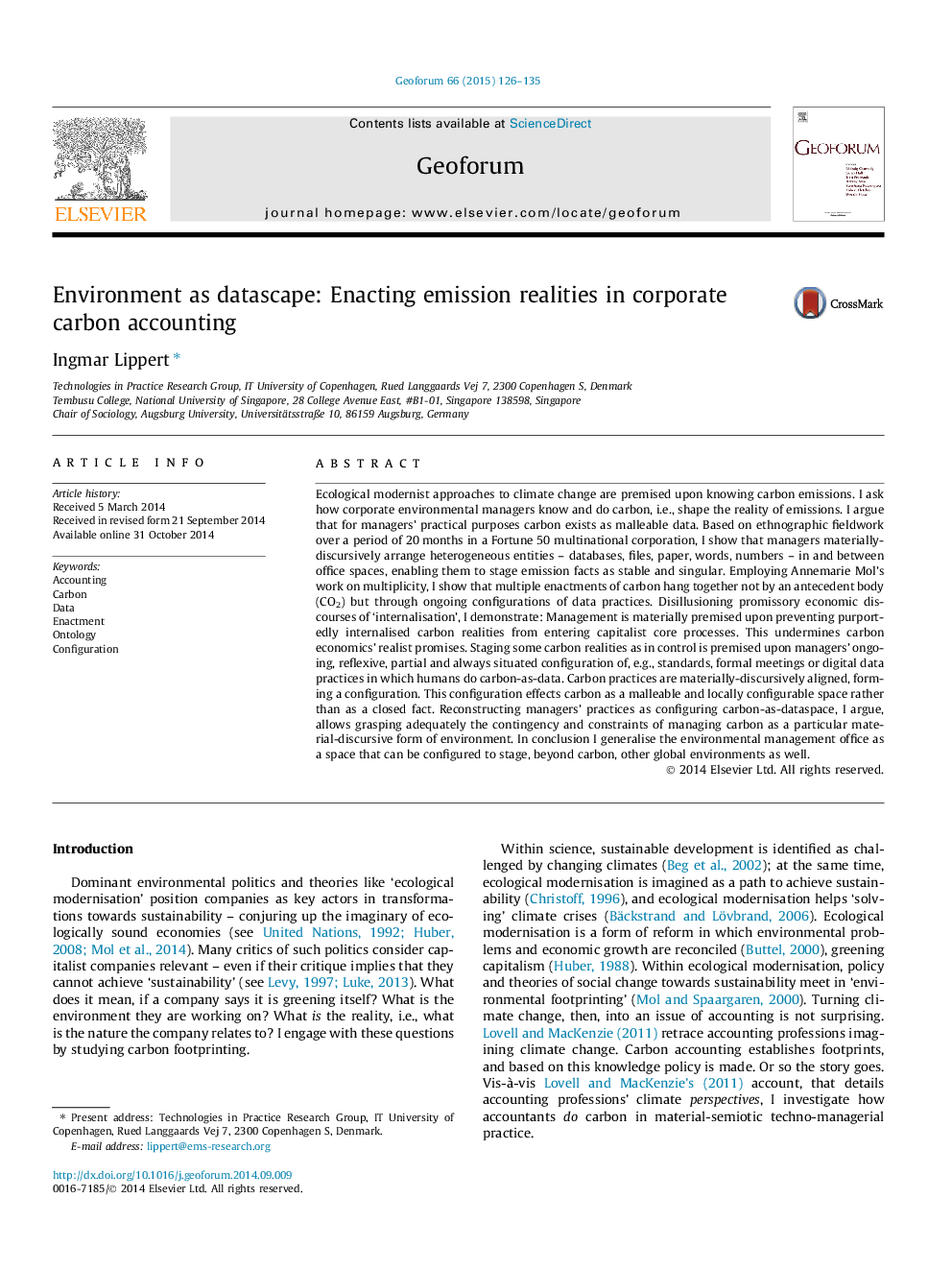| Article ID | Journal | Published Year | Pages | File Type |
|---|---|---|---|---|
| 5073603 | Geoforum | 2015 | 10 Pages |
â¢Ethnographically disillusions ecological modernisation's internalisation imaginaries.â¢Analyses accounting as situated material-semiotic data practices, effecting reality.â¢Reconstructs configurations of environmental data practices as datascapes.â¢Reports ethnographic material on corporate carbon accounting in Fortune 50 company.â¢Argues management offices can stage any desired environmental reality, without care.
Ecological modernist approaches to climate change are premised upon knowing carbon emissions. I ask how corporate environmental managers know and do carbon, i.e., shape the reality of emissions. I argue that for managers' practical purposes carbon exists as malleable data. Based on ethnographic fieldwork over a period of 20Â months in a Fortune 50 multinational corporation, I show that managers materially-discursively arrange heterogeneous entities - databases, files, paper, words, numbers - in and between office spaces, enabling them to stage emission facts as stable and singular. Employing Annemarie Mol's work on multiplicity, I show that multiple enactments of carbon hang together not by an antecedent body (CO2) but through ongoing configurations of data practices. Disillusioning promissory economic discourses of 'internalisation', I demonstrate: Management is materially premised upon preventing purportedly internalised carbon realities from entering capitalist core processes. This undermines carbon economics' realist promises. Staging some carbon realities as in control is premised upon managers' ongoing, reflexive, partial and always situated configuration of, e.g., standards, formal meetings or digital data practices in which humans do carbon-as-data. Carbon practices are materially-discursively aligned, forming a configuration. This configuration effects carbon as a malleable and locally configurable space rather than as a closed fact. Reconstructing managers' practices as configuring carbon-as-dataspace, I argue, allows grasping adequately the contingency and constraints of managing carbon as a particular material-discursive form of environment. In conclusion I generalise the environmental management office as a space that can be configured to stage, beyond carbon, other global environments as well.
